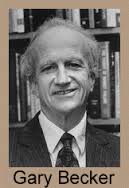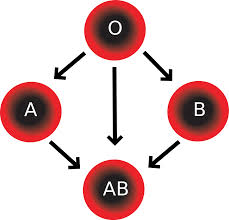Economics has always been about fiscal/monetary, rational/irrational, individual/aggregate, economic models etc. But have you ever wondered how economist’s view love and marriages? Economist’s always ignored this area of study but in 1970’s Nobel Prize winner Gary Becker for the very first time laid out a framework for the analysis of love and marriages.
Gary used very simple economics tools and mathematics and based his analysis on two very simple principles. First , given that marriage is almost always voluntary, either by the couples or their parents, the theory of preferences can explain marriage and couples can be expected to derive a higher utility from being married rather than being single. Second he held that there exists a market for marriages where men and women compete with each other to find the best mate subject to market conditions.
So Becker concluded on the basis of his theory that each person will tend to pair with someone with whom she/he can maximize household production of goods and services, which will include tangible goods the market provides as well as non market goods such as shared passtime, raising children etc. But given the time constraint couples in the long run has to allocate scarce resources (ie. market and non market earnings ) of time.
People involve in marriages beacause they expect gains from it and also expect to derive more utility. The gains from the marriages are well explained by an economist Yoram Weiss of Tel-Aviv University. According to Yoram there are both economic and emotional gains. But yes emotional gains are more dominant but few potential reasons for economic gains are:
1) Sharing of Public Goods like using the same house, both partners can equally enjoy their children etc.
2) Division of labor to exploit comparative advantage and increasing returns to scale
3) Pooling Technology
4) Pooling risk i.e when one partner is sick the other can earn .
There are many other theories that came forward. One of them was given by sociologists Julie Brines and Kara Joyner in 1999 on Co-habiting couples. Where co-habiting couples tend to display a more individualist streak. And hence they balance their interests on the principle of equality.
Another Nobel Prize winner economist Michael Spence explained in his analyses that It is Economic’s ability to expalin this kind of rational calculation under such irrational behaviour.
This is how beautifully and rationally economics explains that even romantic melodrama can be explained by Rational Choice Theory.
Click here for government certifications





10 Comments. Leave new
A very unique and interesting topic
@Yoram … hats off man.. he cud jst get out some economic gains frm marriage too.. lol
A new horizon to marriages. Very nice it is
Good work
This is a very interesting article.. Good work!!
Nice work! Great theory
Nice..!
Nicely related:)
Thats an interesting perspective, amazing choice of topic 🙂
its quite interesting to know about this topic from an economist’s point of view !
good work !